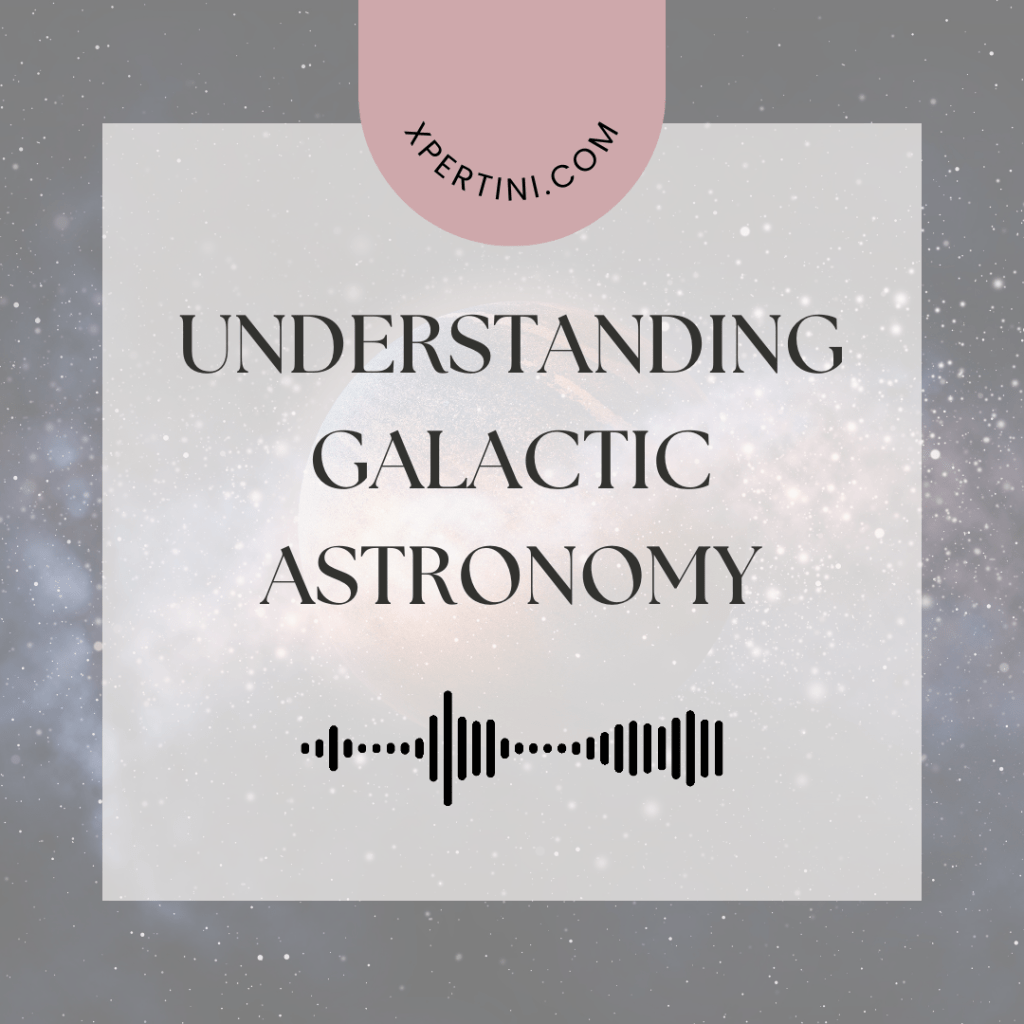Understanding Galactic Astronomy
Course Summary
A transformative journey into the cosmos with our Galactic Astronomy course. This comprehensive exploration of the universe’s vast structures and celestial phenomena is meticulously designed for aspiring astronomers and those seeking to deepen their understanding of galactic wonders.
The course unfolds with an historical voyage, tracing the evolution of Galactic Astronomy through key milestones and the invaluable contributions of pioneering astronomers. Each lesson breaks down complex concepts into accessible frameworks.
Dive into the heart of Galactic Astronomy with lessons on the classification and characteristics of galaxies, demystifying the mysteries of their formation and evolution over cosmic epochs. The journey continues with an exploration of observational tools and techniques, demystifying the instruments astronomers employ to decipher the secrets of the universe.
One of the course’s focal points is the application of mathematical models in Galactic Astronomy, where students learn to wield mathematical concepts to describe and understand galactic phenomena. This lesson equips learners with the analytical tools essential for understanding the cosmos.
The course doesn’t just stop at theoretical understanding; it ventures into the cutting edge of current research trends, offering insights into recent discoveries and emerging directions in Galactic Astronomy. The interdisciplinary connections lesson illuminates the collaborative nature of astronomical research, highlighting the synergies between Galactic Astronomy and other scientific disciplines.
Communication skills are paramount in the scientific community, and our lesson on effective presentation and scientific writing provides crucial insights. This prepares students to articulate their findings with clarity and precision, contributing meaningfully to the discourse in the field.
Navigating beyond the academics, the course into diverse career opportunities in Galactic Astronomy. From academia to research and industry, students gain an understanding of potential career paths. The final lesson offers guidance on effective communication in the field, ensuring that aspiring astronomers can share their insights with clarity and impact.
Enrich your understanding of the cosmos and chart your course in Galactic Astronomy. Join us on this odyssey of knowledge, where each lesson is a stepping stone toward demystifying the mysteries that lie beyond the Earth’s confines. Embrace the evolving field of Galactic Astronomy with confidence and curiosity.
Course Overview
This course provides a comprehensive understanding of Galactic Astronomy into the study of galaxies, their formation, composition, and the various phenomena occurring within them. Participants will explore the significance of Galactic Astronomy in advancing our knowledge of the universe and its applications in scientific research.
Course Objectives
Gain a deep understanding of galactic structures and their evolution.
Develop the ability to analyze and interpret astronomical data related to galaxies.
Acquire knowledge of key astronomical tools and technologies used in Galactic Astronomy.
Explore the historical milestones in Galactic Astronomy.
Understand the role of Galactic Astronomy in advancing astrophysical theories.
Develop critical thinking skills to solve complex problems in Galactic Astronomy.
Familiarize oneself with current research trends and advancements in the field.
Enhance communication skills for presenting complex astronomical concepts.
Apply acquired knowledge to real-world scenarios in Galactic Astronomy.
Explore potential career opportunities in Galactic Astronomy.
Course Outcomes
- Identify and categorize different types of galaxies.
- Demonstrate proficiency in using observational tools and techniques in Galactic Astronomy.
- Analyze the data obtained from telescopes and satellite missions related to galactic structures.
- Discuss and evaluate historical advancements in Galactic Astronomy.
- Explain the processes involved in the formation and evolution of galaxies.
- Apply mathematical models to describe galactic phenomena.
- Critically assess current research literature in Galactic Astronomy.
- Develop effective communication skills to convey complex astronomical concepts.
- Formulate hypotheses and design experiments related to Galactic Astronomy.
- Explore interdisciplinary connections between Galactic Astronomy and other scientific fields.
Course Audience
Aspiring astronomers and astrophysicists
Students pursuing degrees in physics, astronomy, or related fields
Professionals in the space and astronomy industry seeking to enhance their knowledge
Educators and researchers interested in Galactic Astronomy

